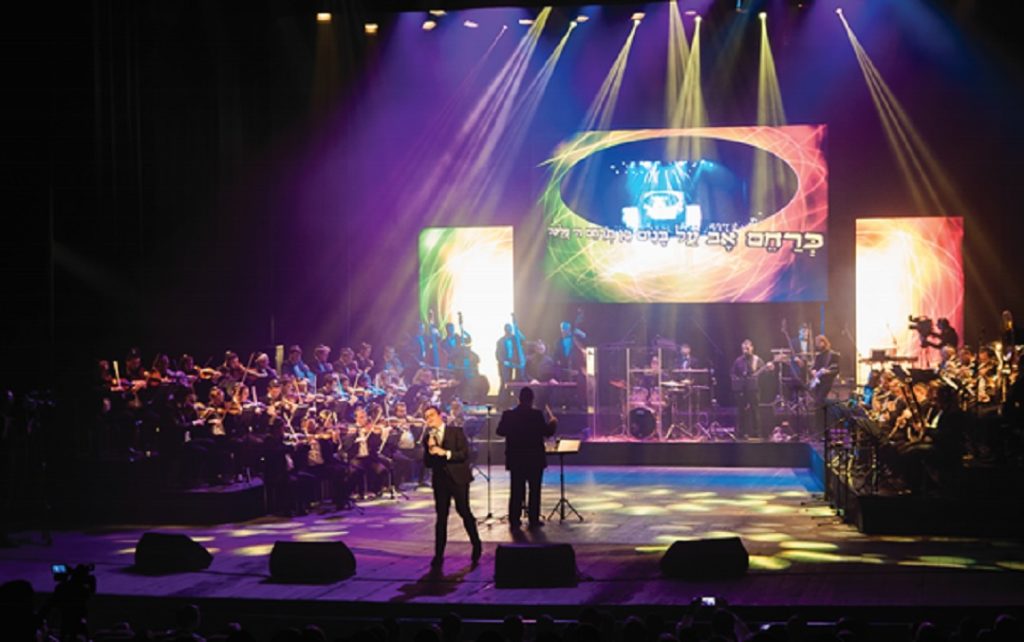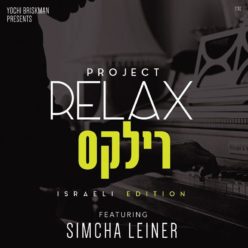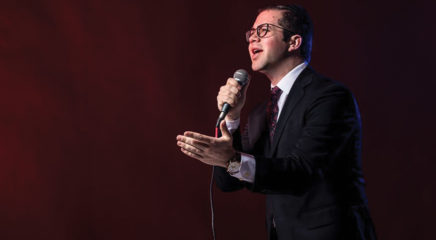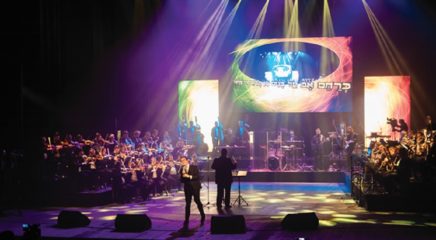There’s been an upsurge in the popularity of Israeli songs in the heimishe listening crowd even in America, and singer Simcha Leiner has ridden on that wave with Yochi Briskman’s newest Project Relax — Israeli Edition. With material from Yonatan Razel, Ishay Ribo, Hanan Ben Ari, and others, Leiner sings 25 tracks of popular Israeli songs. He says he’s been enjoying the vitality and energy of chareidi Israeli radio and assembling a collection of his favorite tracks for years, and that “I had been sending songs to Yochi [Briskman] one by one, until he felt the collection was big and vibrant enough to create another Project Relax.” The selections are varied, with older songs like Naomi Shemer’s 1980 “Al Kol Eileh” (also known as “Al Na Ta’akor Natua,” which became the theme song of the protest against the destruction of Yamit and the Sinai settlements in the wake of Camp David) alongside contemporary numbers such as Mordechai Shapiro’s chassan-kallah benediction “Hayom Hazeh,” the reworked music to Rav Kook’s inspirational poem “Ben Adam” (“Kanfei Ruach”), and Yonatan Razel’s humble “Katonti.”
What took Leiner by surprise was that unlike chassidic song, which can easily be sorted into musical categories, Israeli music has many variations of style, even within subgenres. “These songs are rhythmically complex, which makes creating a medley much more challenging,” Leiner says. It took the sophisticated musical skill of Yochi Briskman to ensure that the songs segue perfectly into each other. “Yochi is a drummer, with a flawless sense of rhythm. I just gave him a list of songs. Originally, we had two particular songs next to each other, but the second song has double the rhythm. So Yochi switched the rhythm at the high part of the first song, in order not to jolt the listener.”
The word out there among Israeli radio listeners is that you can barely tell these Hebrew songs are sung by an American, because Simcha Leiner’s accent and articulation are extremely polished. But Leiner admits that perfecting the reish was the most time-consuming. “On the album, we tried to remain true to the source of the song,” Leiner explains. “Some Sephardic singers might swallow the reish, while modern Israelis will roll the reish. On “Aleh Katan” where the song is sung with Avraham Fried’s universal accent and that’s how listeners are used to hearing it, we kept the regular reish. Articulating certain Hebrew words in very quick succession was also a challenge, but once I identified common American mistakes and committed myself to sounding Israeli, it just flowed.”
The music reflects the original arrangements, with vibrant string sounds in the Sephardic songs; and the lyrical, poetic approach of the songwriters to sections of Tanach and the sheer beauty of the language are magnets of this new genre of spiritually uplifting Israeli song. Leiner says that his personal favorites are the oldies, though, such as “Lo Tedah” and “Al Kol Eileh.” Old or new, it’s a new frontier.
(Originally featured in Mishpacha, Issue 729)
I’m Never in the Studio Without…
“A pen and paper, even when we’re already up to recording. Because I’m a lyricist, I always want to be able to touch up the words, add and change. Once I added an entire stanza, right there in the studio.” —Motty Ilowitz
(Originally featured in Mishpacha, Issue 729)






